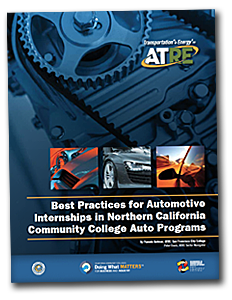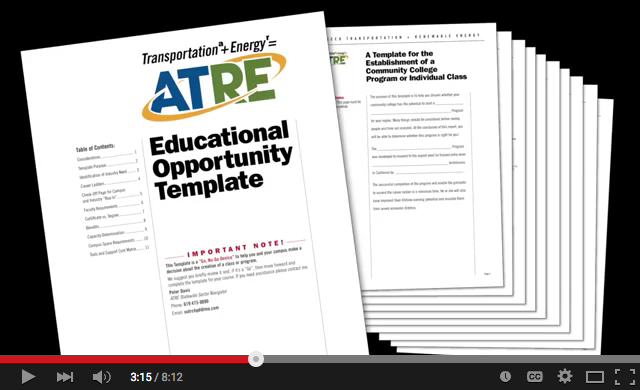CEC Course Books
 |  |  |
 |  |  |
 |  |  |
 |  |  |
 |
Access to CEC Course Books requires registration! Click here to register and access the files.
- CNG Cylinder Inspection_SourceFile_092614.pdf
- CNG Fuel Safety.SourceFile.092914.pdf
- Cummins ISX12-G_Level 1_SourceFile_092514.pdf
- Cummins ISX12-G_Level 2_SourceFile_092614.pdf
- INSITE Level 1_092614.pdf
- INSITE Level 2_092614.pdf
- ISL-G_Fuel Safety_Level 1.SourceFile_093014.pdf
- ISL-G_Fuel Systems_Level Two_SourceFile_ 092614.pdf
- LNG Fuel Delivery Systems_SourceFile_092614.pdf
- LNG Fuel Safety.SourceFile.092614.pdf
- Technical Resource Guide – Battery Pack.pdf
- Technical Resource Guide – Motor and Inverter.pdf
- Technical Resource Guide – FLEET Plug-In Vehicle Safety.pdf
Alternative Fuels
Resources:
Links:
- The Clean Cities’ Guide to Alternative Fuel
Compressed/Liquid Natural Gas Vehicle Technology
Compressed Natural Gas (CNG) is a fossil fuel substitute for gasoline (petrol), diesel, or propane fuel. Although its combustion does produce greenhouse gases, it is a more environmentally clean alternative to those fuels, and it is much safer than other fuels in the event of a spill (natural gas is lighter than air, but disperses quickly when released).
CNG is used in traditional gasoline internal combustion engine cars that have been converted into bi-fuel vehicles (gasoline/CNG). In response to high fuel prices and environmental concerns, CNG is starting to be used also in light-duty passenger vehicles and pickup trucks, medium-duty delivery trucks, transit and school buses, and trains.
Liquefied Natural Gas (LNG) has been used as a clean burning alternative vehicle fuel in thousands of trucks, buses, waste collection trucks, and other vehicles in the United States for more than 15-years.
With the substantial growth of the LNG fuels industry around the world, the opportunity to utilize LNG as a clean and low-cost vehicle fuel in heavy-duty vehicle applications is tremendous.
Resources:
- Alternative Fuels Program Curriculum Guide
- Alternative Fuels Vehicle Maintenance
- Natural Gas Vehicle Training – John Deere (Basic)
- Natural Gas Vehicle Training – John Deere (Advanced)
Links:
- CSA America, Inc. (www.csa-america.org)
- Consumer Energy Center: CNG
- CNG Now! (www.cngnow.com)
- National Alternative Fuels Training Consortium (http://www.naftc.wvu.edu/)
- iPhone App: Alternative Fueling Stations
Electric/Hybrid Vehicle Technology
An electric vehicle (EV) is a vehicle with one or more electric motors for propulsion. This is also referred to as an electric drive vehicle. The motion may be provided either by wheels or propellers driven by rotary motors, or in the case of tracked vehicles, by linear motors.
Unlike an internal combustion engine (ICE) that is tuned to specifically operate with a particular fuel such as gasoline or diesel, an electric drive vehicle needs electricity, which comes from sources such as batteries or a generator.
A hybrid vehicle is a vehicle that uses two or more distinct power sources to move the vehicle. The term most commonly refers to hybrid electric vehicles (HEVs), which combine an internal combustion engine and one or more electric motors.
Resources:
- Electric Vehicle Program Curriculum Guide
- Introduction to Hybrid Auto Maintenance
- Introduction to Electric Vehicles
Links:
- Charging While You Work – A guide for expanding electric vehicle infrastructure at the workplace (Link)
- California Energy Solutions YouTube Channel – iTunes Includes discussion of Electric & Plug-In Hybrid vehicles.
- GreenCarsNow.com
- A Guide to Clean and Efficient Vehicle Technologies (www.driveclean.ca.gov)
- Electric Auto Association (EAA) (www.eaaev.org)
- A Student’s Guide to Alternative Fuel Vehicles
- All About Plug-In Hybrids (PHEVs) (www.calcars.org)
- Hybrid Vehicle – Wiki
Greenhouse Gas Emissions Reduction (SMOG)
Resources:
- Automotive Emissions and Computer Control
- Advanced Emissions
Links:
- Clean Car Talk (www.cleancartalk.com)
- Valley Clean Air Now (www.valley-can.org)
- Coalition for Clean Air (www.coalitionforcleanair.org)
- Southern California Air Quality Management District – iTunes Podcasts
GIS/GPS
Resources:
- Introduction to Geographic Information Systems
- GIS: Spacial Analysis
- GIS: Cartographic Design
- GIS: Database Design and Management
- GIS: Internship
- GIS: Mapping Intro
- GIS: Databases
- GIS: Cartography
- GIS: Spactial Analysis
- GIS: Spactial Reasoning
- GIS: Advanced Applications
- GIS: Intro to GIS for Firefighters
Hydrogen and Fuel Cell Technology
A Fuel cell vehicle or FC vehicle (FCV) is any vehicle that uses a fuel cell to produce its on-board motive power. Fuel cells onboard the FC hydrogen vehicles create electricity using hydrogen fuel and oxygen from the air.
Links:
- California Hydrogen Highway (http://www.hydrogenhighway.ca.gov)
- Hydrogen Business Council (CA) (www.californiahydrogen.org)
- Hydrogen Now (www.hydrogennow.org)
- Fuel Cells 2000 (www.fuelcells.org)
- National Hydrogen Association (www.hydrogenus.org)
- American Hydrogen Association (www.clean-air.org)
- International Association for Hydrogen Energy (www.iahe.org)
Clean Diesel and Biodiesel Technology
Diesel engines are cleaner than ever before, and in the next few years the diesel industry will virtually eliminate key emissions associated with on- and off-road diesel equipment. This environmental progress is the result of the new clean diesel system – combining clean diesel fuel, advanced engines and effective exhaust-control technology.
Biodiesel is the name of a clean burning alternative fuel, produced from domestic, renewable resources. Biodiesel contains no petroleum, but it can be blended at any level with petroleum diesel to create a biodiesel blend. It can be used in compression-ignition (diesel) engines with little or no modifications. Biodiesel is simple to use, biodegradable, nontoxic, and essentially free of sulfur and aromatics.
Resources:
- AUTO 107 Diesel Exhaust Emission Control and Servicing FINAL.doc (Link)
- Auto 107 Student Handout Guide-FINAL Feb 2012.doc (Link)
- AUTO 107-Content Review FINAL.doc (Link)
- Diesel_Exhaust_Emissions-Aftertreatment FINAL.ppt (Link)
- DIESEL_EXHAUST_EMISSIONS-EPA FINAL.ppt (Link)
Links:
- Southern California Biodiesel Users Group (www.socalbug.org)
- EPA Biodiesel Resources
- National Biodiesel Board (www.nbb.org)
Transportation Management
Links:
- California Energy Solutions YouTube Channel – iTunes Includes discussion of Transportation Demand Management.
Business and Industry Links
Links:
- Chevron Texaco Technology Ventures (www.chevron.com/ctv)
- BMW (www.bmw.com)
- Ford (www.ford.com)
- Honda (www.hondacorporate.com)
- Toyota (www.toyota.com)
- General Motors (www.gm.com)
- Chrysler(www.chrysler.com)
- Southern California Edison (www.sce.com)
- Proton Energy (www.protonenergy.com)










